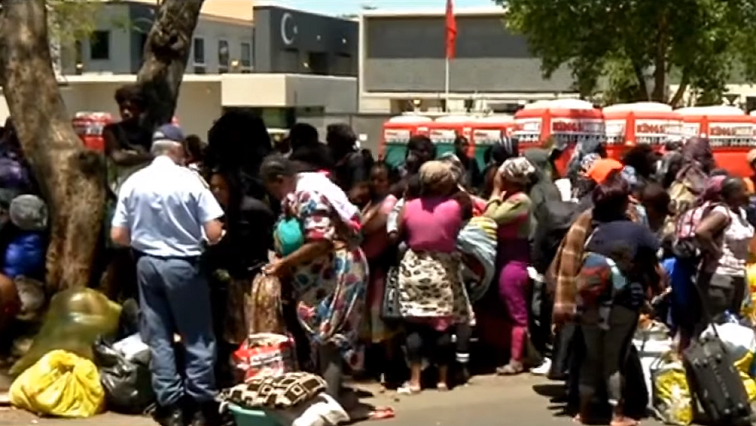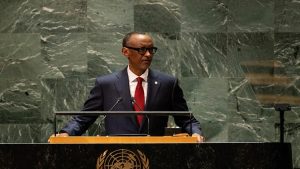The United Nations High Commission for Refugees (UNHCR) will on Saturday, 20th June 2020 mark the World Refugee Day under the theme “Every Action Counts”.
This year, due to extreme conditions dictated by the COVID-19 pandemic, the UN Refugee Agency will not be able to organise activities with the people they act on behalf of. Instead, attempts will be made to raise awareness about the state of refugees in online platforms.
The biggest loser on the day will be refugees, asylum-seekers, internally displaced and stateless people. Owing to the inaccessibility of technology, the majority will not know if they could also be part of the more than 50 million people globally who have been assisted by the UNHCR to restart their lives since its founding.
The year 2020 also presents an even bigger challenge for African refugees who find themselves in parts of the world where their race triggers a more hostile reaction than their reasons for seeking refuge. Nevertheless, this is not a new phenomenon since Africans have been confronting racism in parts of the world since the remotest antiquity.
The fact that 20 June was transformed from Africa Refugee Day to World Refugee Day through a UN General Assembly Resolution 55/76 adopted on 4 December 2000 is evidence that the multilateral institution recognised that the refugee crisis was not an African problem but that of the world.
In South Africa, like elsewhere in the world, there shall also be no physical public rallies on the internationally-significant day. Likewise, the voice of those who have been protesting in Cape Town, Pretoria and Durban will be muted. Since its declaration in 2001, World Refugee Day is one calendar day.
The question that arise is, what will happen once the day has come and gone. The reality is, the state of refugees in South Africa would not have changed. But it doesn’t have to be like that. The 1951 Refugee Convention and its accompanying 1967 Protocol seek to ensure the protection and respect of the rights of refugees.
The challenge, however, has been the abuse by some refugees of the rights and privileges accorded to them by their hosting countries. Refugees descend into South Africa because of its foreign policy which opts for their acceptance and integration into local society. This translates to entrusting the local communities with the biggest responsibility of incorporating asylum seekers and internationally-displaced persons.
Without satisfactory orientation, these people are left to literally work it out among themselves. The results are sporadic attacks and ill-informed animosity against locals and foreign nationals. In all these outbreaks, women and children are the most affected.
The role of Track Two diplomacy should never be undermined in the advocacy to raise awareness and policy transformation pertaining to refugees.
In South Africa, television personalities like Leanne Manas and Nomzamo Mbatha are at the forefront of leading responsiveness campaigns about the plight of refugees. The two influencers have over the years demonstrated their compassion to campaign for the wellbeing of displaced women and children in Africa.
More could be done in the media and in news reporting, in particular, to bring to the fore challenges facing displaced people and refugees in Africa.
At the political and legislative structures, Home Affairs Portfolio Chairperson Adv. Bongani Bongo is a human rights activist who would be biased towards policies that guarantee the protection of the vulnerable. Therefore, whether at governmental or non-governmental level, South Africa is not short of voices and structures that can amplify calls for refugee-sensitive laws and practices. Indeed, every action counts.
According to the UNHCR, there are almost 600 000 displaced people in the Southern Africa region. The majority of those being refugees and asylum-seekers in South Africa. This number could actually be more. While political instability may account for common displacements, some are just in pursuit of better socio-economic opportunities. This then perpetuates the strain on an economy that has not adequately taken care of its nationals.
The animosity and hostility that gets brewed in the process require a lot of education on the part of both locals and foreigners. The African philosophy of Ubuntu is based on mutual respect and love for one another. This means that while local nationals open their social spaces for foreigners, there is an expectation of reciprocated respect in return. The respect includes adherence to the rule of law.
Although the country’s Bill of Rights clearly states that “Everyone has the right, peacefully and unarmed, to assemble, to demonstrate, to picket and to present petitions”, being an asylum seeker or refugee does not mean that one is immune from the rule of law – which is what has been witnessed during various violent protests. This behaviour also accounts for the stiff heartedness and acrimonious arrogance with which some locals react towards foreigners. However, that is not the reflection of the South African policy on refugees.
According to Refugees Act 130 of 1998, “the Government of the Republic of South Africa has an obligation to grant protection to refugees and other persons in need of protection under a number of UN Conventions such as the 1951 Convention Relating to the Status of Refugees”.
The country’s policies permit selected refugees to be integrated into the education, labour and health systems. This is a giant move away from the system of refugee charities and handout-mentality that is maintained by other nations. Although there may still be outstanding areas such as the inclusion of refugees into the social grant system, South Africa is doing fairly well compared to other countries globally when it comes to hospitality.
The only major gap that must be re-interrogated is ways to strengthen the law that protect political asylum seekers and refugees fleeing persecution who find it even more dangerous to seek refuge in South Africa because their adversaries consider the country as a springboard for their activism.
The government must also fast track the backlog of cases at the Refugee Appeal Board. The model that has been adopted by South Africa could serve as a guide for other nations while the country may also learn that it cannot be a ‘free-for-all’ destination.
Many economies in the world were successfully built by diaspora communities that were integrated into their hosting nations.
Every Action Counts, even during a COVID-19 epoch where refugees must also be part of the fight against its spread.
By Mpho Tsedu – CEO: Institute of Foreign Affairs






